One of the hardest things about travel photography is the fact that you are only in a place for a short moment. At that time, you have no control over the weather, the light, or the crowds, and you have to work with what you are given at that moment. After your initial moment of awe at seeing the Taj Mahal, your mind immediately switches to, I have to take pictures of this moment! But how do you get good photographs of the Taj Mahal among the throngs of people that aren’t simple ‘me in front of the Taj’ photos?
I’ve been to the Taj Mahal twice on simple day visits as part of a bigger tour of Rajasthan. I, of course, wanted to enjoy and take in the famous site, but I also wanted to photograph it. Because I was a part of a bigger tour, I didn’t really have control over what time of day I went or where we went. This is real travel photography; you only have 4 hours in a place that is one of the most visited places in the world. It’s sweltering hot, the queues are long, the skies are gray, it may even be raining, and some of the buildings are off-limits or under repair. How do you make the most of your time there and get good photos that will impress your friends and family and look great in your Instagram feed?
Here are some of my best tips for how to photograph the Taj Mahal if you are on a short visit there. Note that this is not a technical guide to photographing the Taj Mahal – I’ll leave that to the photographers who live in the area or who have the time to simply visit and revisit so they can find the best possible situations, lighting, and views – that’s professional photography.
These are Taj Mahal Photography tips for when you are simply there for a half-day visit and how to balance the time you have there seeing the architectural wonder and photographing it. This is for the average tourist who has time constraints and will be moving along the next day. Even with limited time and control of the elements, you can get phenomenal images.
Table of Contents
What are the Taj Mahal Photography Rules
- First things first – know the rules – it will save you time and hassle.
- You cannot bring a tripod inside. In addition, big bags are also frowned upon. It’s best to leave the bigger camera bag/backpack in your hotel and take minimal small camera bag with maybe an extra lens in it, an extra camera battery, SD cards, filters – just the bare essentials.
- There is no photography inside the main structure/mausoleum. Signs are posted everywhere about this, but people are still taking phone photos which was pretty disappointing. Surprisingly it was mainly the Indian visitors taking photos despite the warning signs.
- No video cameras are allowed in. However, taking your phone is ok. They just don’t want professional video equipment inside.
- These are rules that are actually strictly enforced, so don’t even try to get around them, or you’ll find yourself delayed quite a bit.
Taj Mahal Photography Tips for a Short Visit
Bring a Wide Angle Lens
If you are shooting with a DSLR bring the widest lens you have! The Taj Mahal is a massive structure (the surrounding complex measures around 1,902 feet in length and 1,002 feet in width), and many times you need a wide angle to be able to fit it all in from spots that are closer up. If you don’t have a wide angle lens or are shooting with a phone, then try a panoramic image to fit it all in.
For many of these images I had the camera places on the ground using the wide angel to get a unique perspective.
What Photo Gear Should You Bring?
See my complete list of favorite Travel Photography Gear
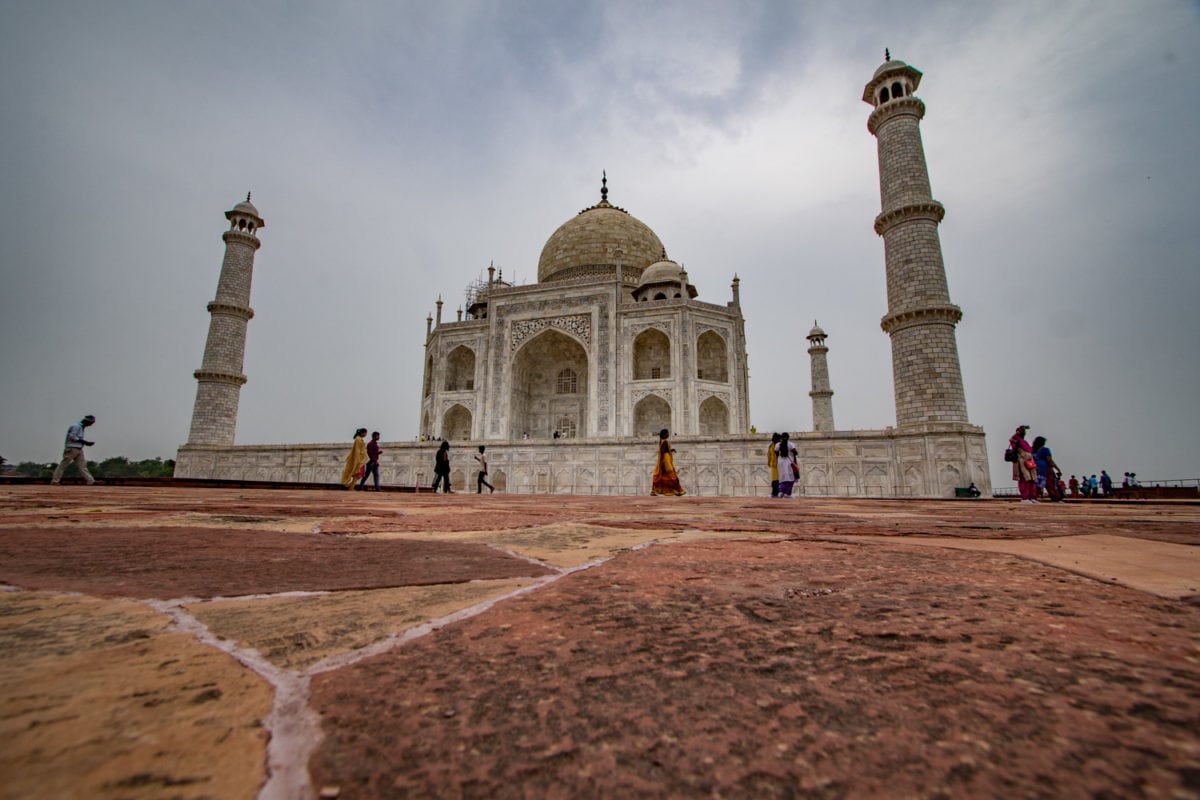
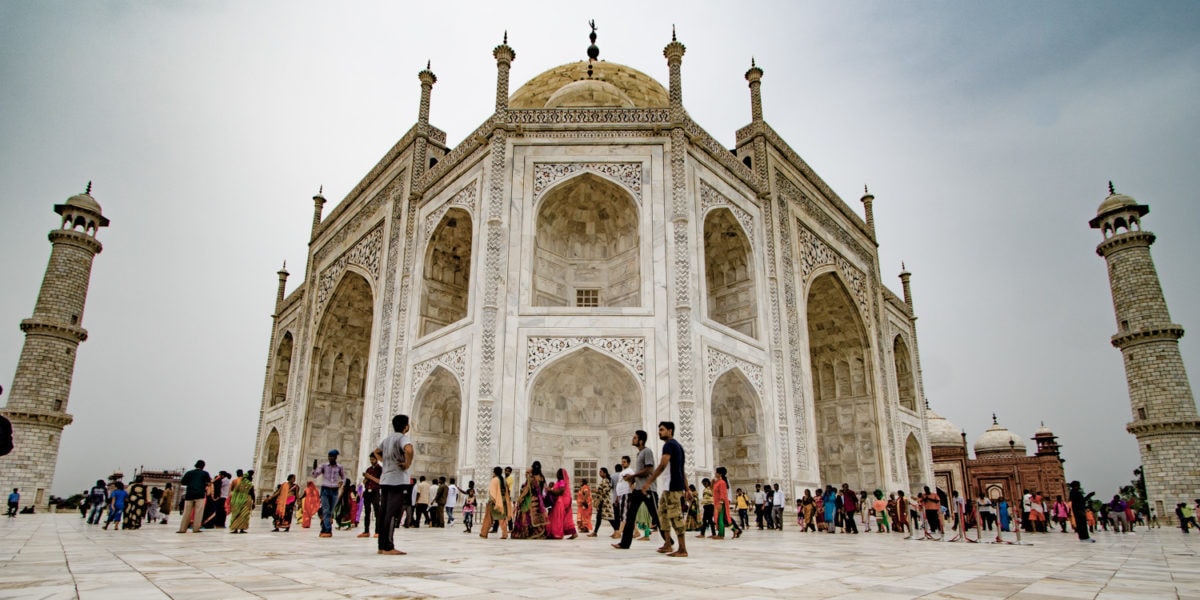
Taj Mahal Composition Tips
Most of the time, you want to set up your shot so that you can observe the Rule of Thirds. The rule of thirds is a guideline that proposes that an image should be imagined as divided into nine equal parts by two equally spaced horizontal lines and two equally spaced vertical lines, and that important compositional elements should be placed along these lines or their intersections. Proponents of the technique claim that aligning a subject with these points creates more tension, energy, and interest in the composition than simply centering the subject.
So if you are taking a photo of a person in front of the Taj, they should be in one of the 1/3rd sections and not in the middle. I’ve provided a few example of making sure your focal subject of the picture is in the 1/3 section of the image.
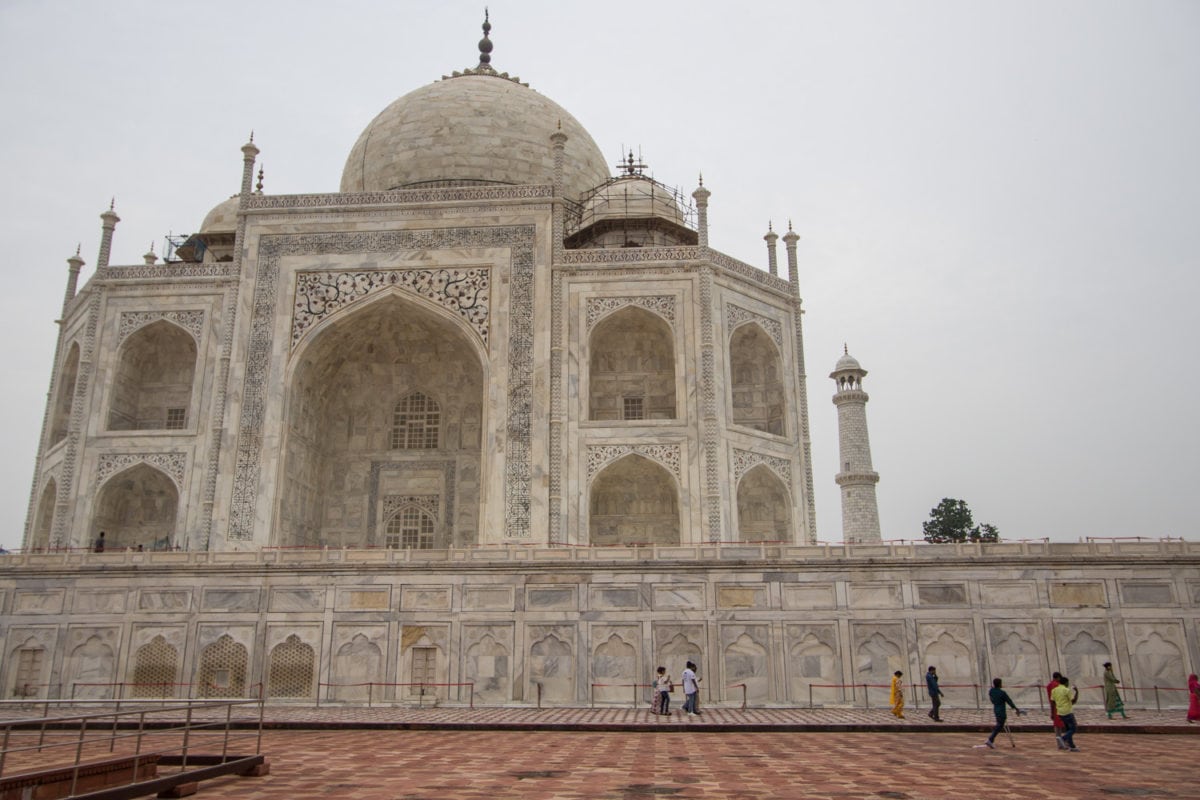
However, the Taj Mahal is a structure that is completely symmetrical – and symmetry is always wonderful to shoot straight on with the building right in the middle. The Taj is one of those places where it’s ok to break the rule of thirds! My best advice is do a little of both!
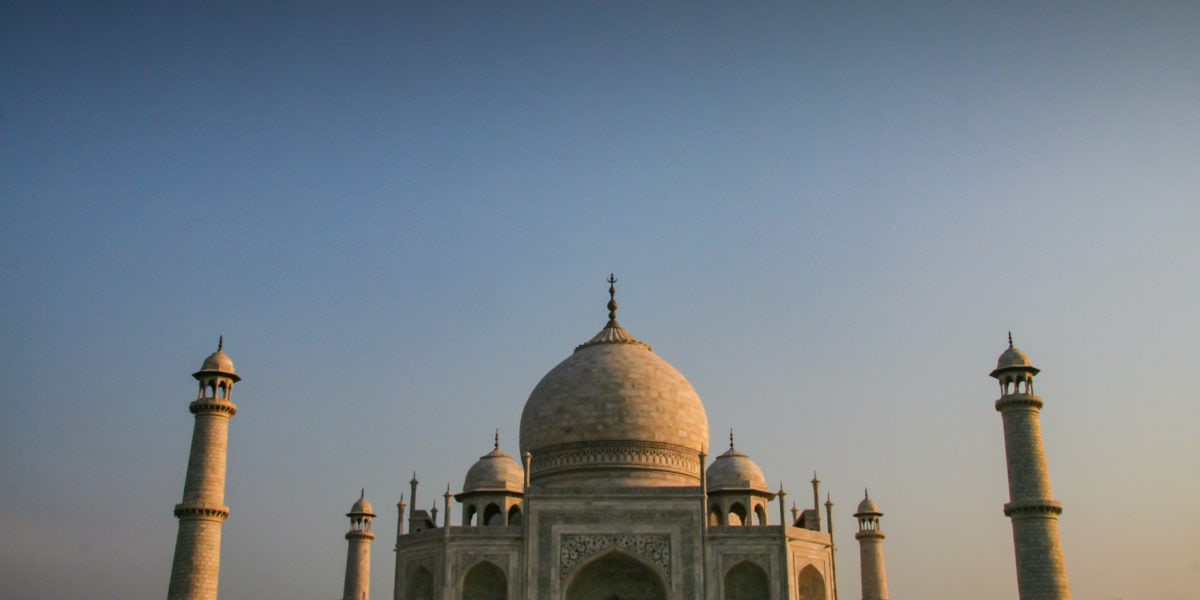
Be aware of the lines in the image. Maybe it’s the border of the fountain, or the tile lines in the floor, or a wall. You should try to place those lines so that they end in one of the four corners of the image. This helps your eye be led through the picture and creates a more pleasing image.

Capturing Reflections
The Taj is a great place to shoot reflections! There are fountains leading up to the front, there’s a river in the back, and don’t forget that puddles are your friend! Sometimes, you have to move around the water source to ensure that you get the subject you are shooting properly reflected in the water. If you are shooting with a phone, tap on the water on your screen to ensure the reflection is in focus; that will make the reflection pop even more.
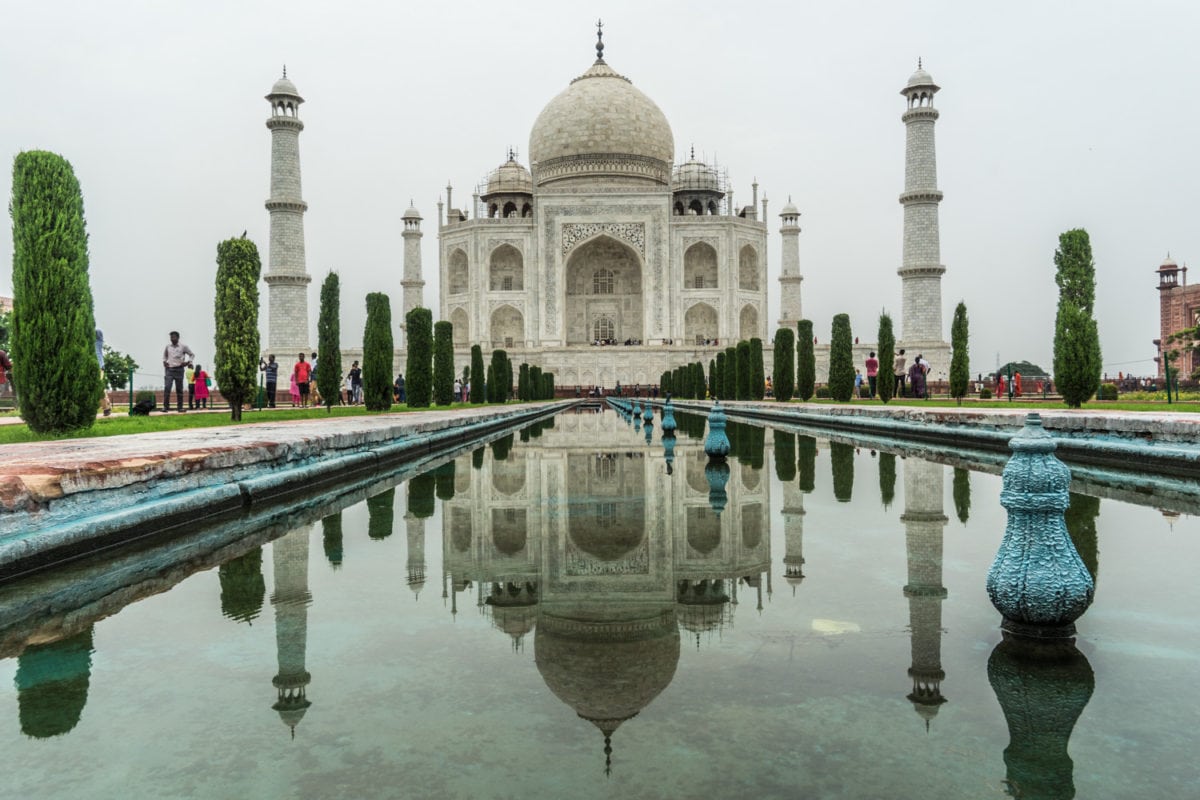
Don’t Forget the Details
Every good picture or picture tells a story. And every story needs some details. It’s easy to simply shoot the entire building in a billion different shots – it is pretty impressive, after all. However, don’t forget the details. One of the beautiful things about the Taj is the intricate marble details. From a distance, it looks completely white, but up close, you start to see the details and colors. In addition to the building details, don’t forget the details of the people who are there visiting, people tell a story too. Make sure that as you click away, you get some of those detail shots too!
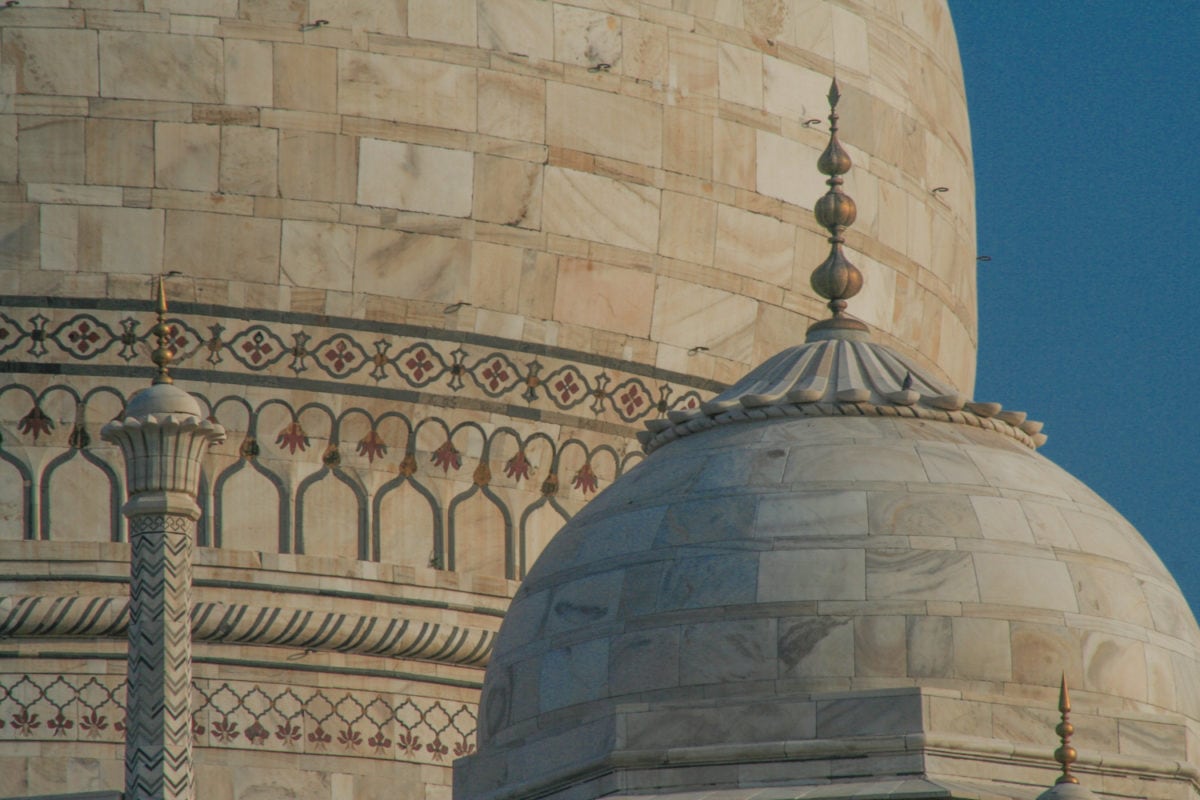
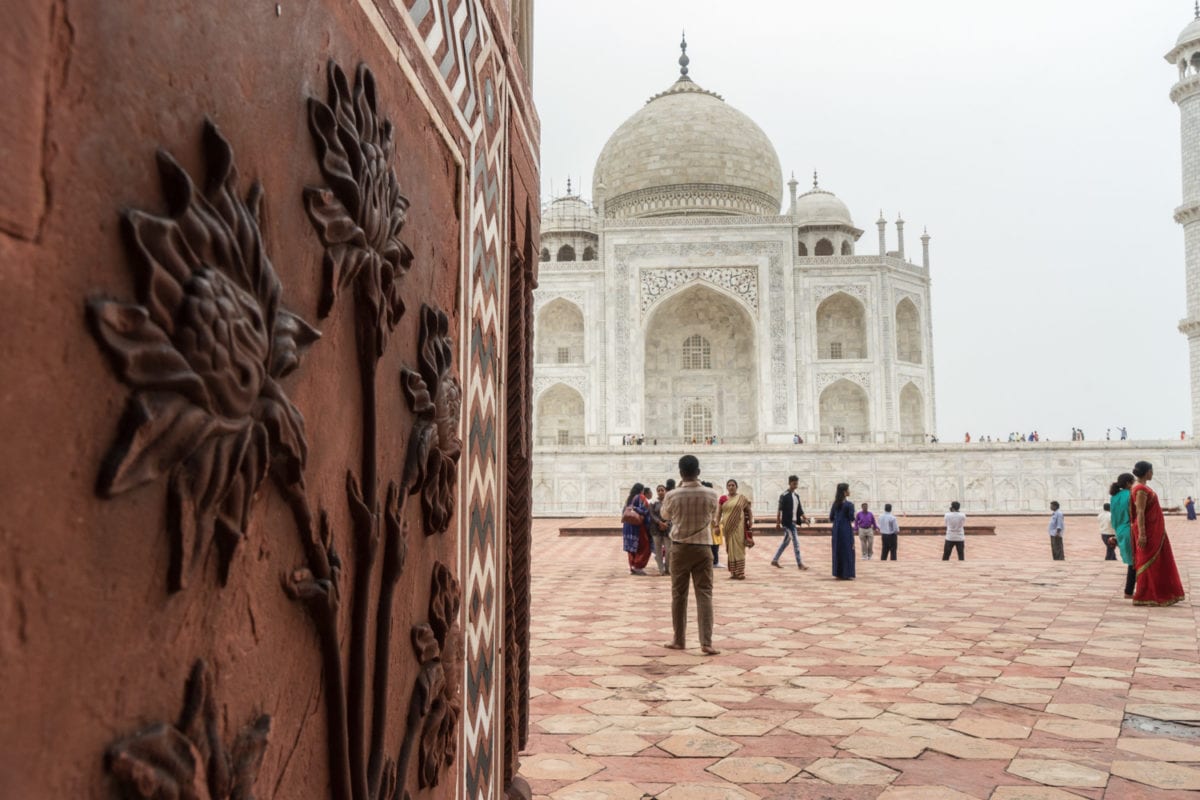
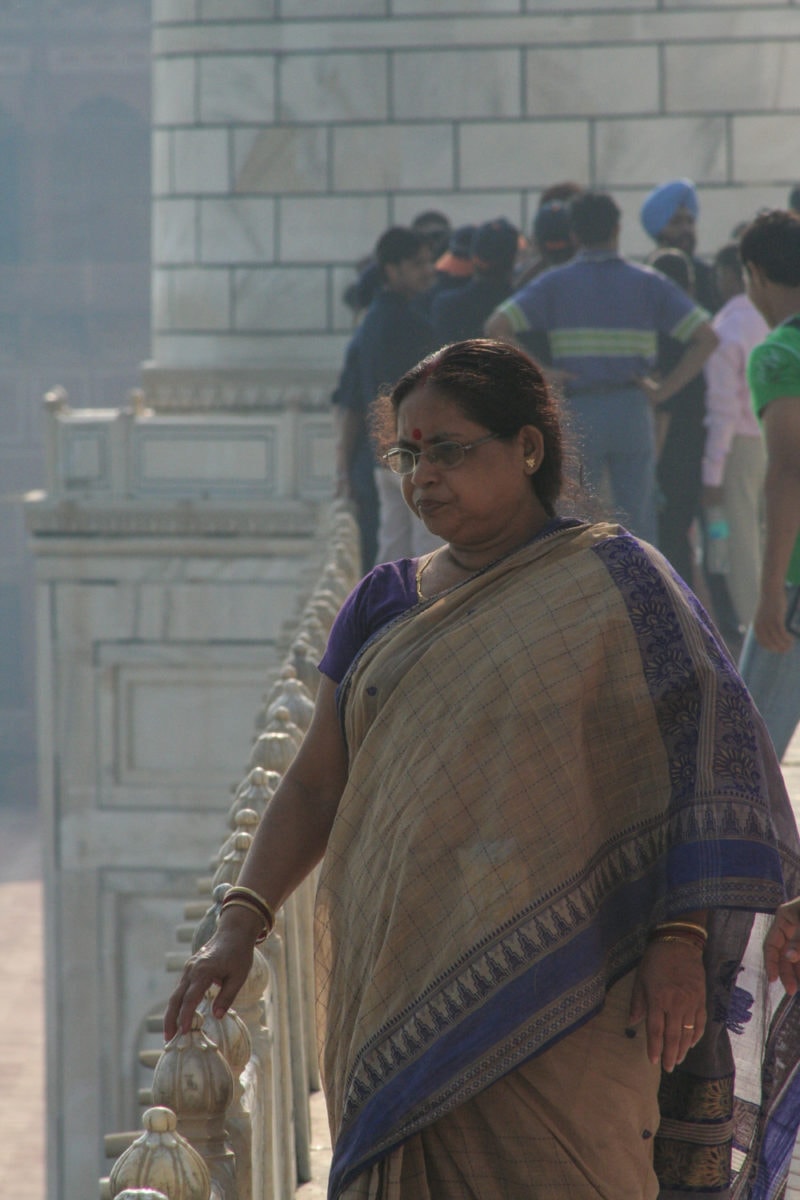
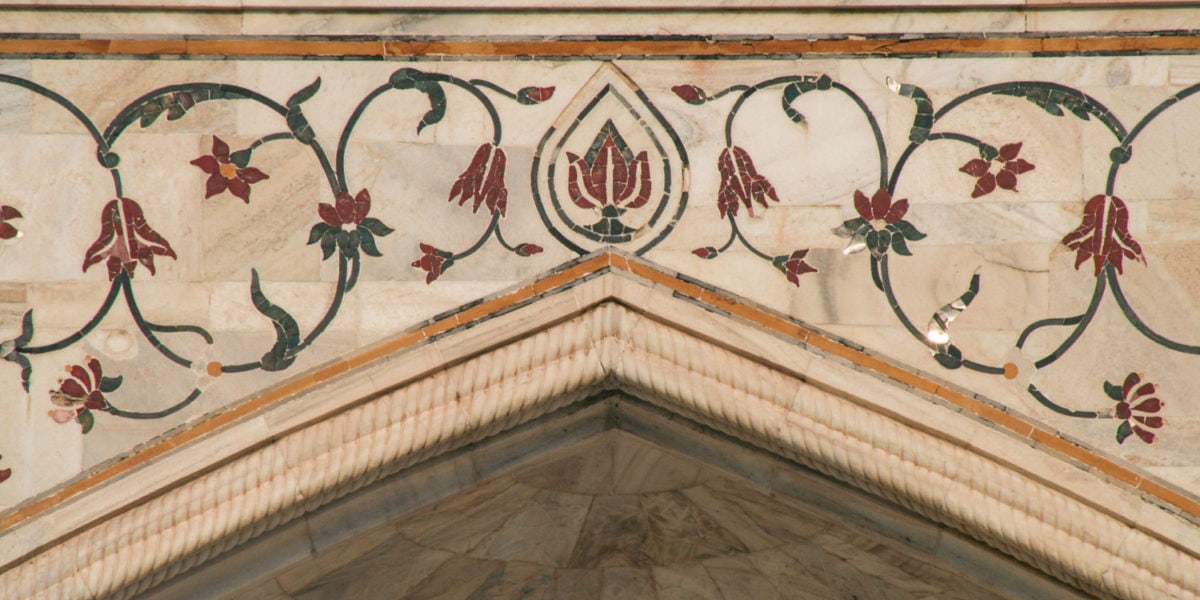
Framing
The buildings on either side of the Taj Mahal are great places to set up and frame the Taj by their big arches. There is also a great framing place when you first enter, but it’s hard to get that picture without a lot of people in it. In addition, you can also frame the Taj all the way from the Red Fort! If you find yourself on a Red Fort tour, be sure to get a great framed shot of the Taj from one of the patios.
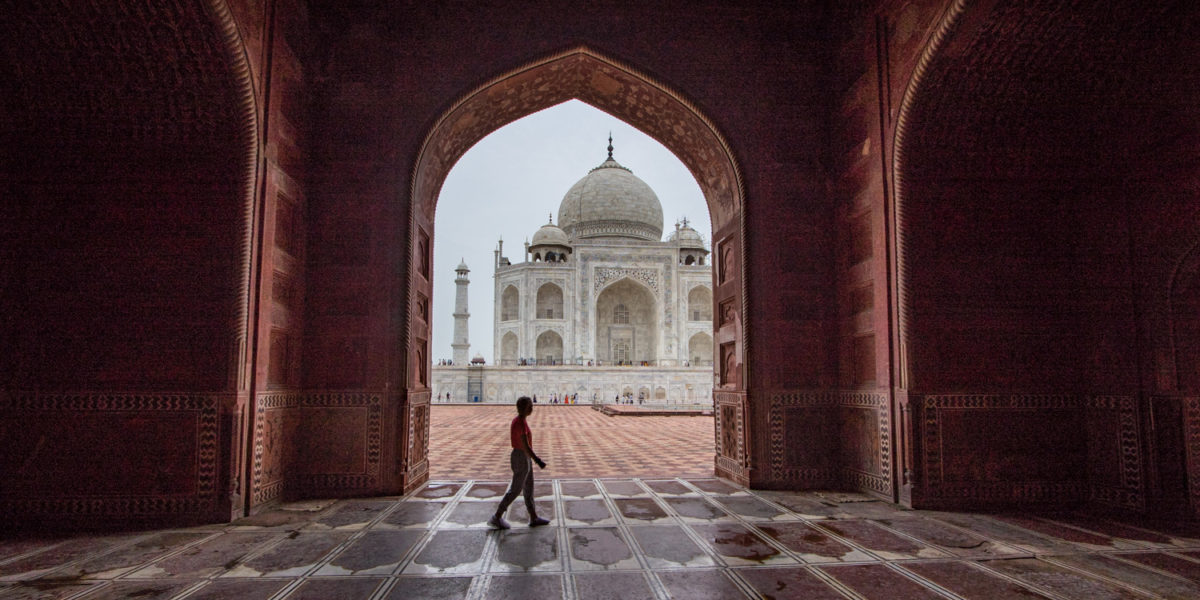
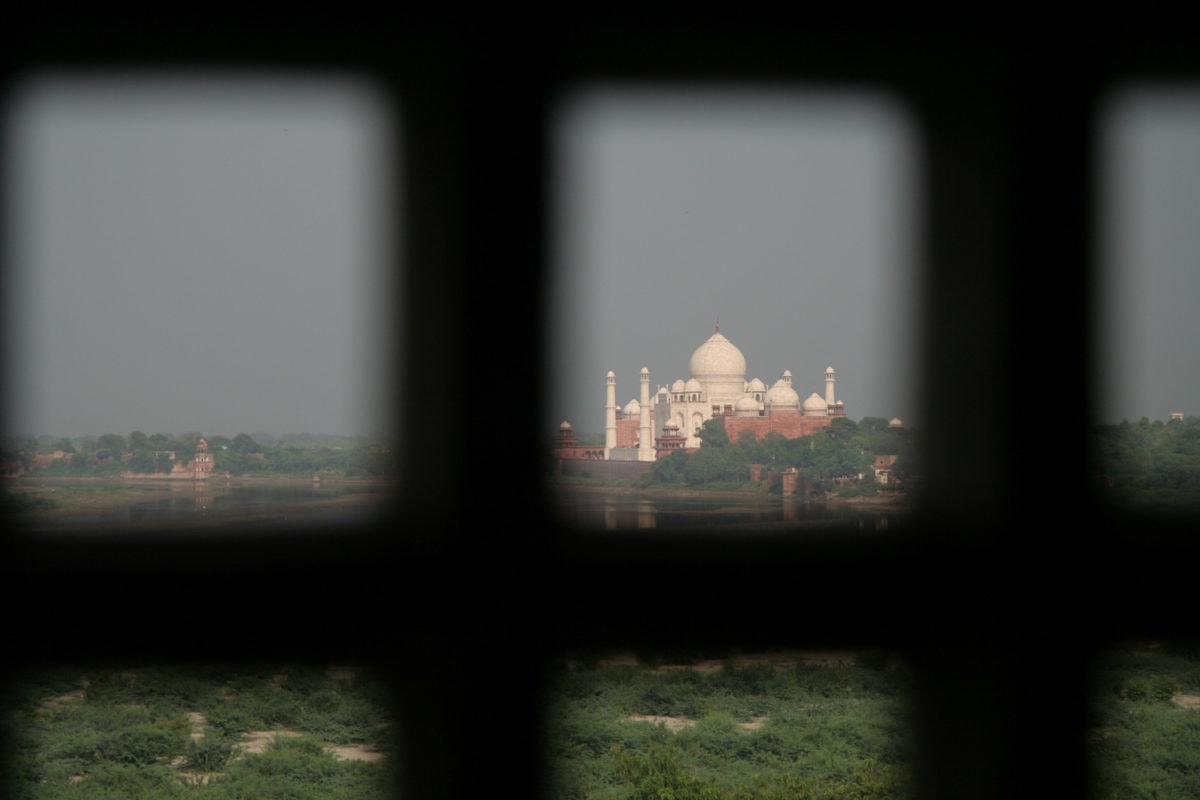
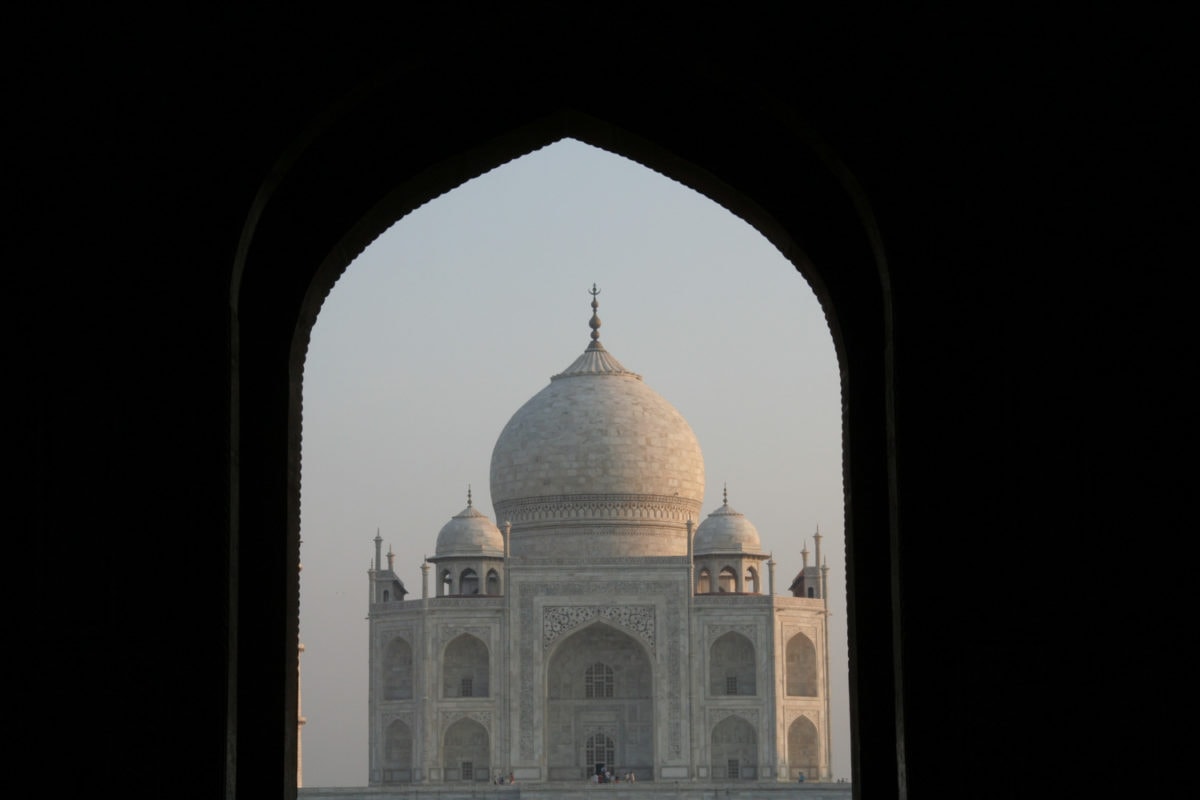
Black and White
What is the best way to deal with those flat, grey skies? If you can’t beat them, join them; go black and white! The Taj Mahal is lovely to capture in black and white since the building itself if white marble it makes the whole scene pop. The reflections are even great in black and white.
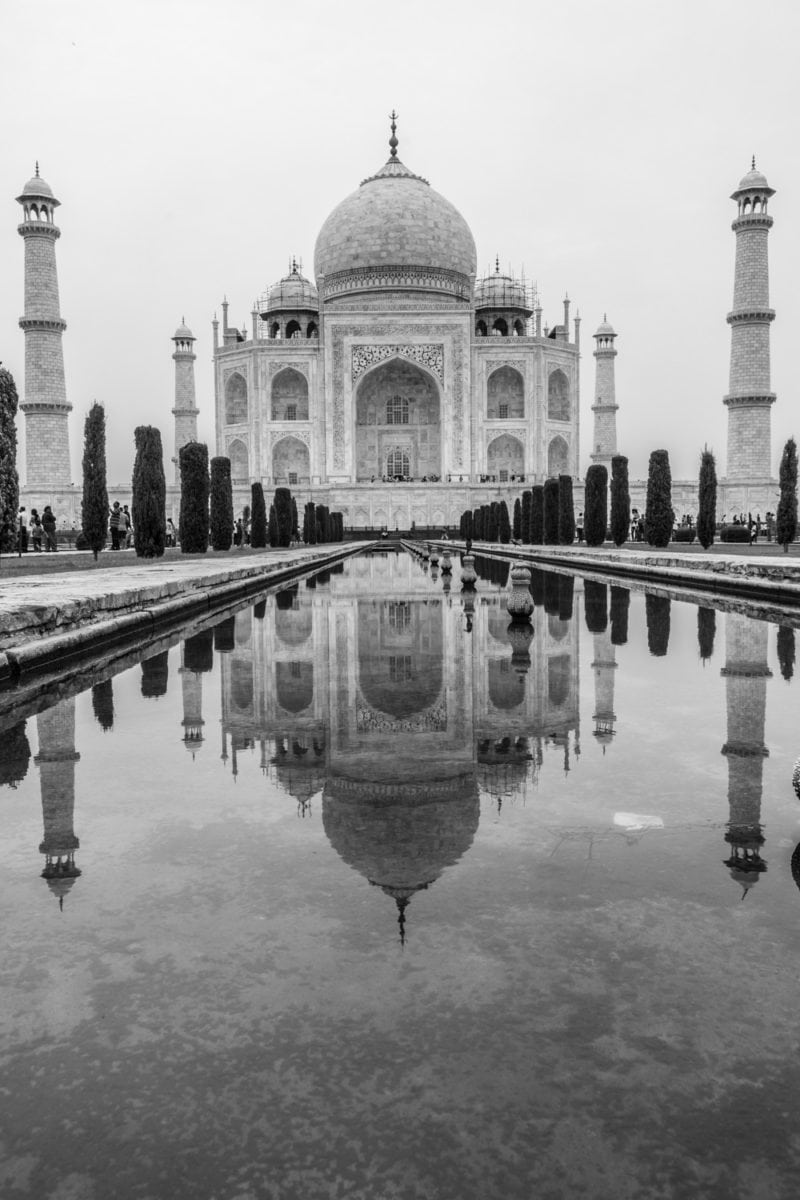
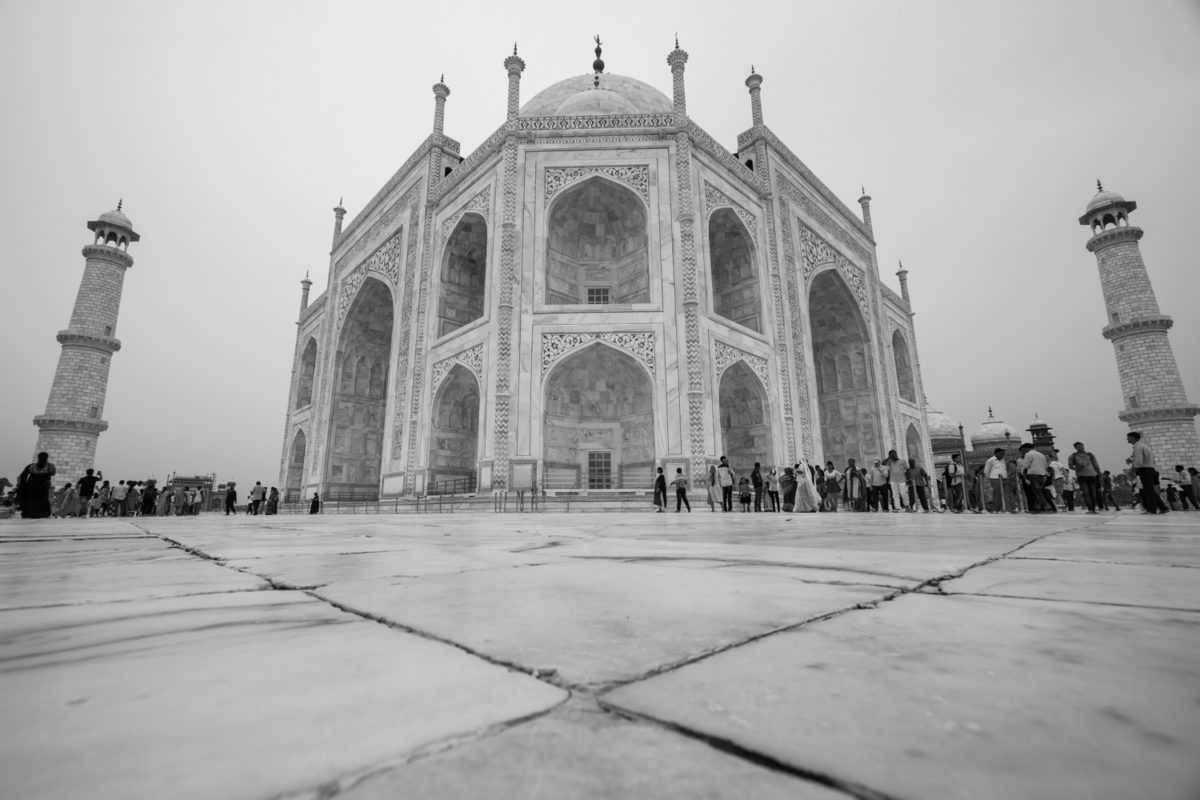
How to Eliminate People From Your Photos
Sometimes you have to embrace them! First, people are great to have in your shot for perspective and help you understand just how big the Taj is. Plus, people actually paint the more accurate picture of the scene and it tells more of a story. I always love to take a few images of the crowds and craziness of the scene too so that I can remember it accurately and ensure others can see how hard I worked to get those shots without people in it!
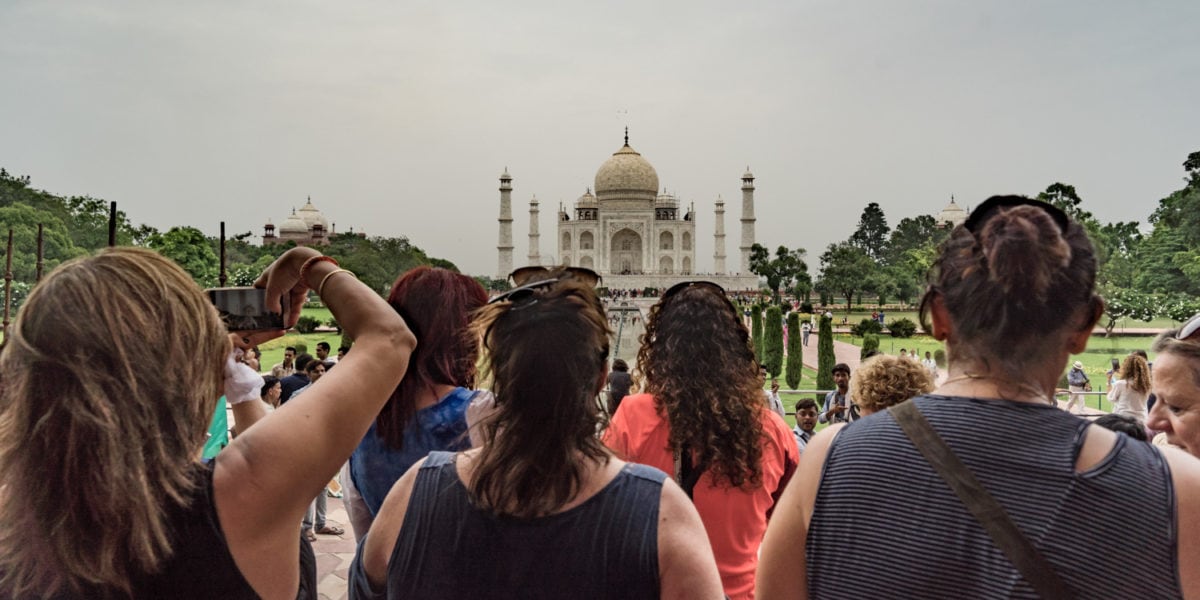
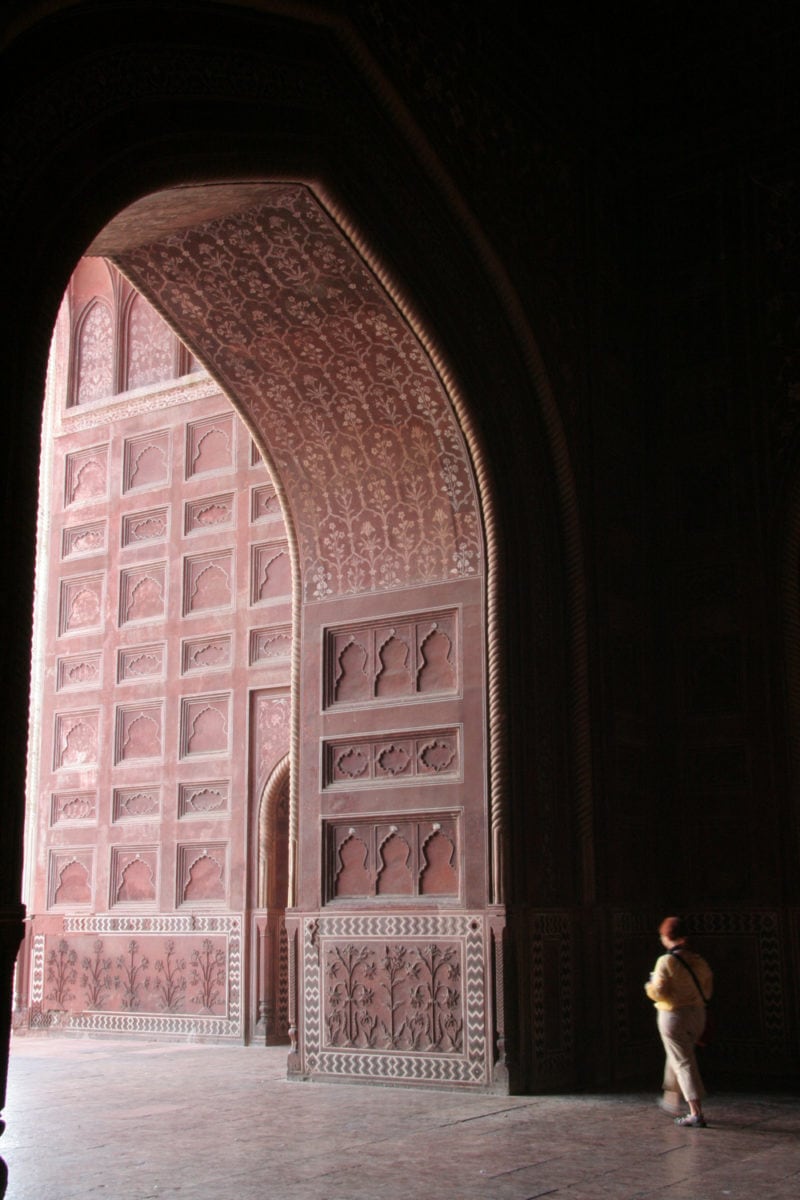
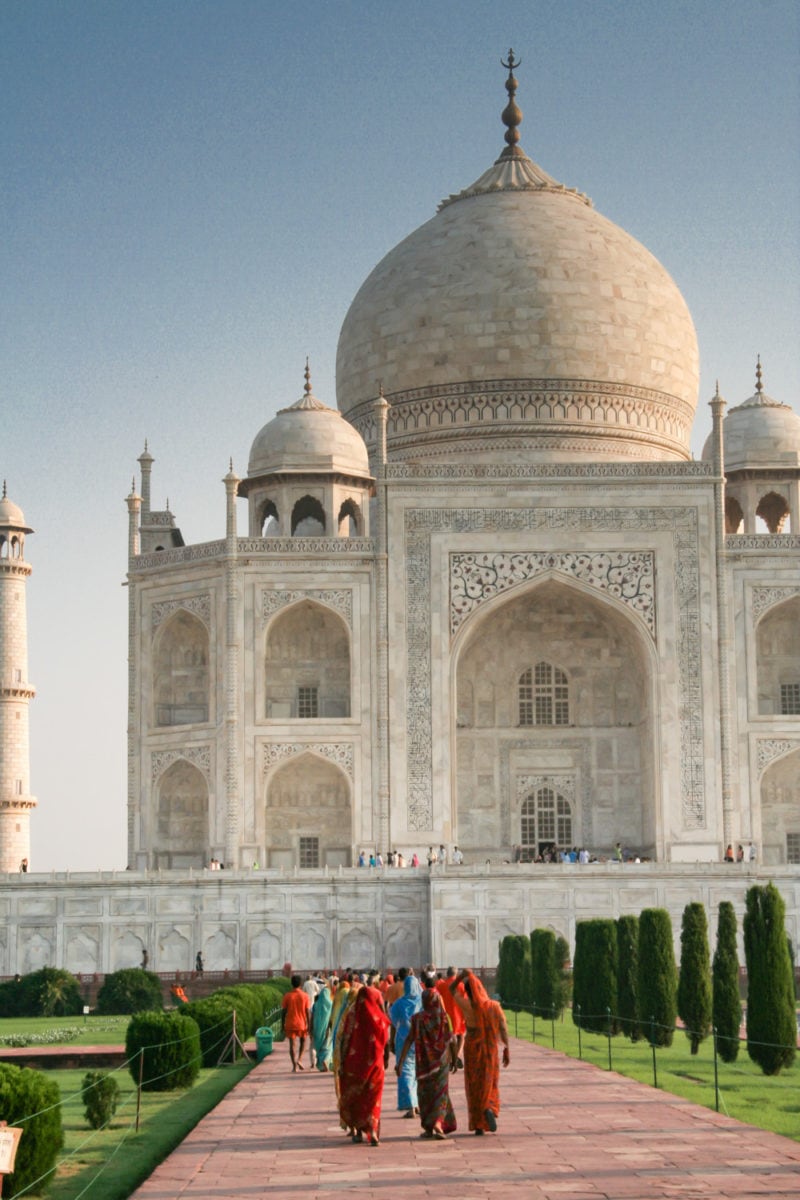
Don’t Forget to Have Some Fun
Now that you got all of you super professional looking images of the Taj Mahal – why not have some fun? Do some selfies, jumping shots, or play with the perspective – whatever you think would make a fun shot!
It’s pretty amazing when you get to experience a place that you only thought you’d read about but never see, and then you are there, seeing it with your own two eyes for the first time. You can touch it, walk around it, and it becomes real. Hopefully this gave you some ideas of how you can capture that real experience even if you have a short time as part of a larger tour.
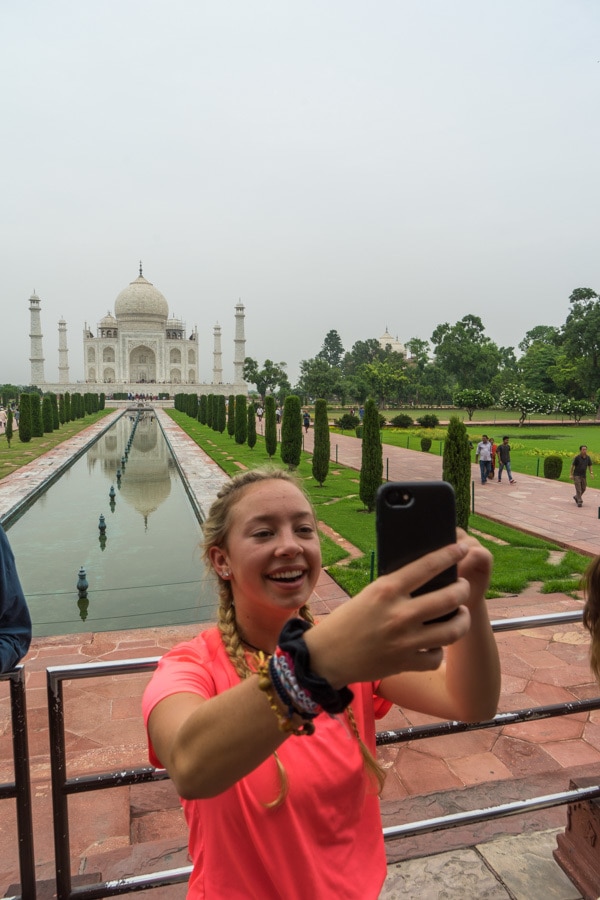
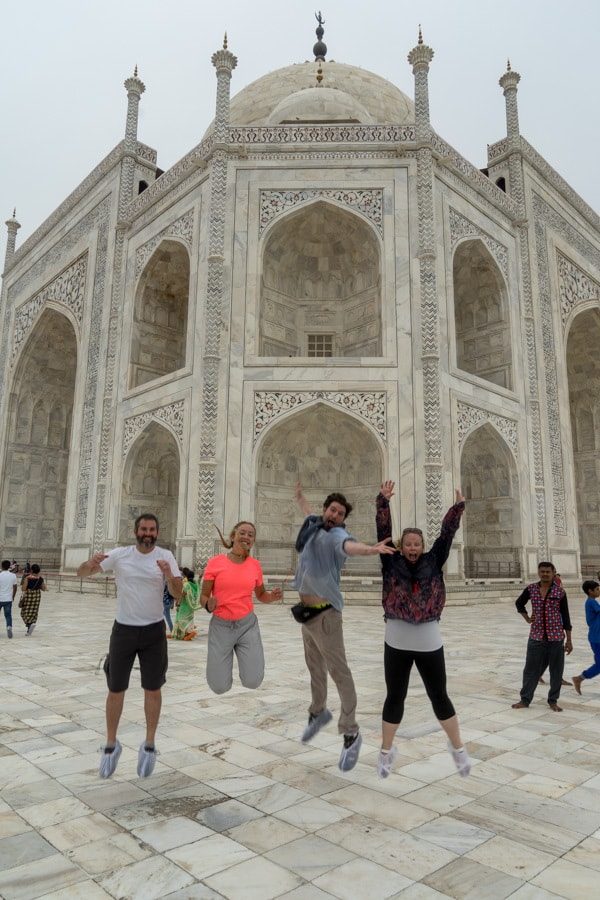
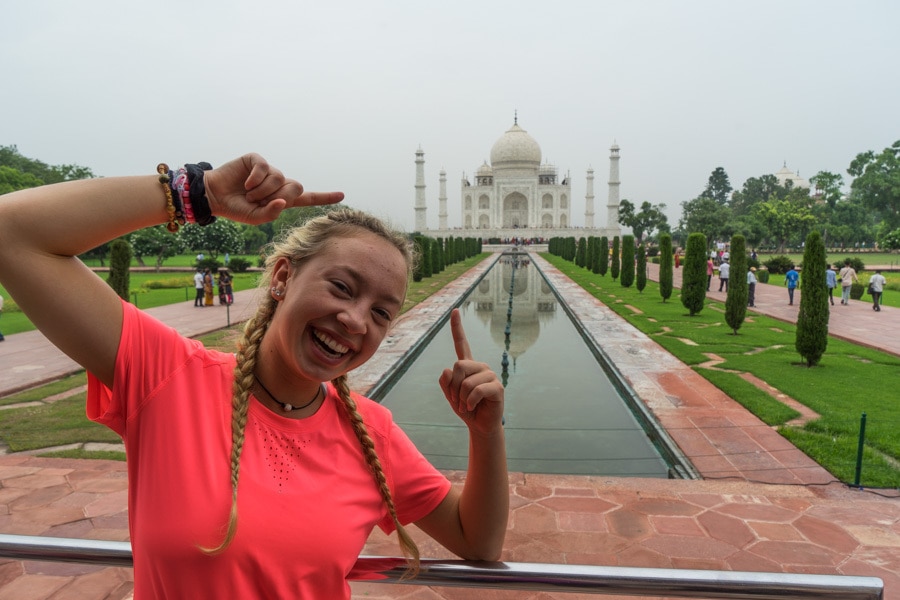
Visiting the Taj Mahal
Opening times: Daytime: sunrise to sunset every day (06:00 am to 06:30 pm) except Friday. Every Friday, the Taj Mahal is closed and is only accessible in the afternoon for Muslims to attend prayers. Nighttime: 08:30 pm to 12:30 am
Cost: For a foreign visitor, the ticket price is Rs. 1,050 per person ($14.25 USD)
Go as a part of a larger India tour: we took the Classic Rajasthan Tour by Intrepid Travel and loved it!


By Haley October 22, 2018 - 2:33 pm
Amazing tips! That structure is so mesmerizing and beautiful I can’t wait to go someday.
By Nikki at Calculated Traveller November 8, 2018 - 1:12 pm
This was a very informative article. I did not know there were so many different approaches to getting the perfect image of such a beautiful structure. It’s good to be aware of the rules before going to avoid having to change your plans or worry that you are not following or respecting the rules. These are some beautiful images! Thank you for sharing.
By Daspalla November 12, 2018 - 7:07 am
Hey,
Taj Mahal was one of the most oldest monument in india. Taj Mahal stands symbol of Love. Nice Photography I hope you did very hard work while taking this pictures.
By Show And Sell April 13, 2019 - 2:15 am
These are really nice tips, you have covered multiple angles, good work.
By Anoop at Meesapulimala December 19, 2019 - 1:25 pm
I am an Indian and I have never visited Taj Mahal. It is one of the things in my bucket list. Been putting it off since Taj Mahal is at the northern end and I am i nthe south.